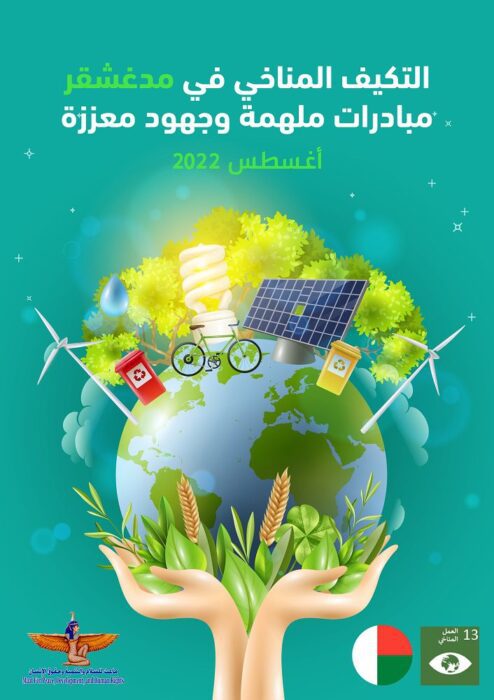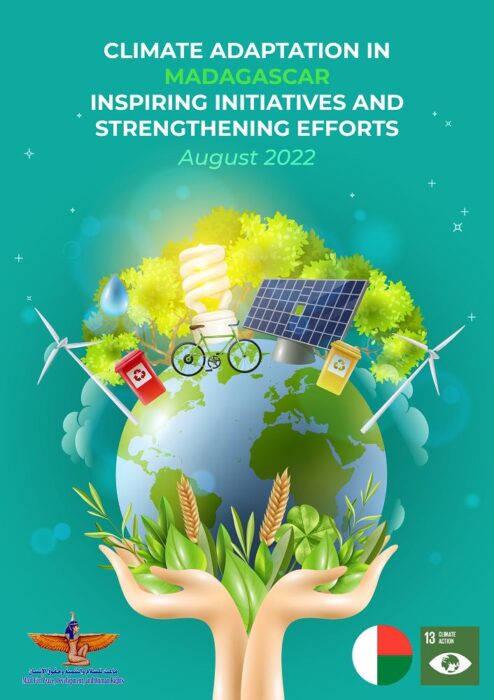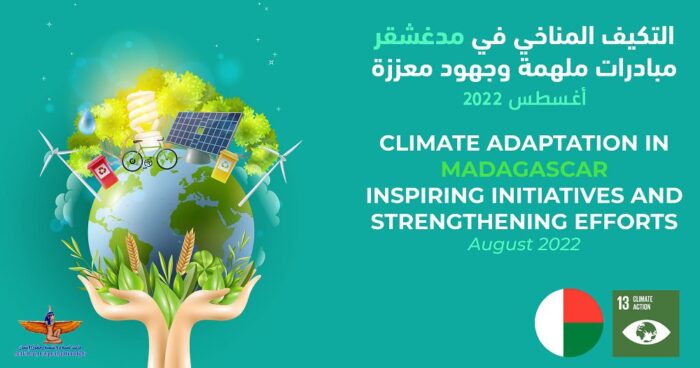Maat in a new study: Madagascar is one of the countries most vulnerable to climate change & 250,000 people are in danger due to rising sea levels and tropical cyclones
Okeil: We recommend Madagascar to highlight climate change-related human rights challenges
Maryam Salah: We call on the government to share its successful experience in regional forums and to help developing countries that suffer from the repercussions of climate change
Maat for Peace, Development and Human Rights issued a study entitled "Climate Adaptation in Madagascar: Inspiring Initiatives and Advanced Efforts", which focused on four main axes; the first focused on the impact of climate change on Madagascar and its various sectors and categories; the second discussed the government policies in Madagascar to adapt to climate change, including the actions it has taken based on its political commitment to international agreements on climate change and the 2030 Agenda for Sustainable Development; the third highlighted the achievement of Goal 13 on climate action; and the fourth touched upon the programs and policies launched by the government to adapt to climatic changes.
Maat confirmed in its study that Madagascar is among the top ten countries most vulnerable to severe climatic events. Climate change and high poverty rates are closely intertwined, and the per capita gross national income is only 430 US dollars.
Agriculture is a mainstay of Madagascar’s economy, providing a livelihood for around 80% of its population; however, due to climate change, water resources has become inaccessible and soil fertility has been reduced, negatively impacting the livelihoods of 80% of agricultural laborers.
With two-thirds of Madagascar’s population living in coastal areas, the majority of its population is subjected to the effects of rising sea levels and tropical cyclones, which actually occur three to four times a year, affecting 250,000 people and causing damages of US$50 million annually. Moreover, increases in the duration and frequency of droughts subject crop yields and food security to risk.
Given the alarming repercussions of climate change on Madagascar, Maat indicated that the government has immediately responded with policies to adapt to severe climate changes, and made several efforts to address and reduce the country's exposure to climate change. The national policy of climate change was divided into five goals; Promoting adaptation, promoting mitigation, integrating climate change programs at all levels, developing financing instruments, encouraging research and development, technology transfer and adaptive management. The implementation of this policy is enhanced by the participation of actors from the public and private sectors, civil societies, NGOs and local communities, and the coordination by the Ministry of Environment.
For his part, Ayman Okeil, an international human rights expert and President of Maat, indicated that women are among the groups most affected by climate changes in Madagascar, explaining that the state needs to launch national programs for women’s relief in the areas most affected by climate fluctuations. Okeil further recommended the government of Madagascar to submit a report on the situation of women affected by climate change to the international human rights mechanisms, particularly the Special Rapporteur on the promotion and protection of human rights in the context of climate change.
On another level, Maryam Salah, a researcher in the Sustainable Development Unit at Maat, recommended Madagascar, being distinguished from other countries in eastern and southern Africa and other island countries, to share its successful experience in adapting to climate changes in regional forums, and to help other developing countries that suffer from climate change repercussions, through activating its participation in the African Commission on Human and Peoples' Rights.
![]()
 |
 |











